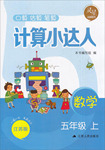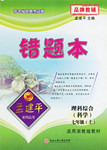题目内容
The idea of sailing west to reach the riches of the East Indies and the Asian mainland was much in fashion with cultured Europeans during the late fifteenth century. Learned people agreed that the earth was round: their only questions were how long and how dangerous would be a trip to reach the Orient. Christopher Columbus, the son of an unknown weaver, and himself a weaver of ambitious dreams, made his historic voyage to the New World in 1492. He didn't go to school very much, but be learned to read and write Spanish during his travels. He also taught himself Latin because all the geography books were written in Latin. Sailing with a tiny fleet of three ships, the Santa Maria and two smaller ships, the Pinta and the Nina and a crew of ninety sailors, be found the thirty-three-day crossing easier than his nearly-decade-long effort to find royal sponsors willing to support it. The trip drew not only on his own skills as an expert ship's captain, but also on his ability to plan such an expedition, obtain governmental approval and financing, and finally, demonstrate its success so that such explorations could continue. He tried for years to get King Ferdinand and Queen Isabella to supply him with ships and money. Finally they agreed, but he made more demands. He wanted to be made a knight, admiral of the Ocean Sea. He wanted to be the viceroy(总督)and governor general of all lands he would discover. Also he wanted one-tenth of everything he found of value in the new lands. The explorations that followed Columbus-those of Cabot, Verrazano, Cartier, and many others-benefited from a new maritime technology borrowed from Arab sailors and from a variety of new vessels (船,舰) such as the light-weight caravels employed by Columbus. Sailors also perfected sails and various types of riggings that gave ships added stability and greater maneuverability(可操作性)on the open seas. And when leaving sight of the coast, new navigational aids-charts, compasses, and astrolabes-permitted them to determine their position with some, though not perfect, accuracy. Columbus himself made a total of four voyages to the New World but he did not become rich as he had hoped. At the end of his life he only had a pension the king and queen had given him because he was the first to reach the New World. He spent the last few months of his life in bed because of the pain of arthritis(关). Columbus not only discovered a New World, but led the way for other explorers.
- 1.
What was the dream destination of Europeans in the late fifteenth century?
- A.The oriental countries.
- B.The East Indonesia.
- C.The Old World.
- D.The African mainland. .
- A.
- 2.
What preparations did Columbus make for his first voyage to the New World?
①He planned the expedition thoroughly.
②He spent almost ten years in looking for sponsors.
③He gathered a great many ships.
④He hired 90 sailors.
⑤He demonstrated his success of former far-reaching explorations.- A.①②③④⑤
- B.①②④
- C.①④⑤
- D.②④⑤
- A.
- 3.
We can learn from the passage that ________.
- A.Christopher Columbus was an ambitious explorer
- B.he was a geologist with ambitious dreams
- C.Columbus became extremely wealthy after making a total of four voyages
- D.he was an unsuccessful canvasser(游说者)
- A.
- 4.
What equipment aided the sailors in locating relatively more accurately?
- A.A variety of new vessels.
- B.The light-weighted caravels.
- C.Various types of riggings.
- D.Charts, compasses and astrolabes.
- A.
- 5.
In the passage, the author mainly tells us ________.
- A.the tragedy of Columbus's life as a whole
- B.Columbus's life story and his achievements
- C.Columbus's exploration to the East Indies and Asia
- D.how Columbus arrived in the New World .
- A.
1.根据文章第一段可知 15 世纪晚期欧洲人梦想去的地方就是东方。
2.根据文章第三、第四段可知 C 项正确。
3.根据文章的叙述我们可知哥伦布是个野心勃勃的探险家。
4.根据文章第四段第 3 句 aids 后的破折号后的内容可知 D 项正确。
5.文章讲述的主要是哥伦布的探险及他对探险、 航海方面的成就、晚年,故 B 项正确。

 灵星计算小达人系列答案
灵星计算小达人系列答案 孟建平错题本系列答案
孟建平错题本系列答案If you happen to find “On the Road” at a gas station or “Who Moved My Cheese?” in your grocery store, it might not be and accident. You could be the unwitting beneficiary of a “bookcrosser”---- a person who on purpose leaves books in public places hoping they’ll be found by strangers.
The idea o leaving a book for someone else to find and enjoy is not new ---- some people have been leaving just-finished books in airports and on buses since the dawn of the hurry-up-and-wait. Creating a system for book-leavers to find out what happened to those books adds a new way to the practice. Bokcrossing.com, the website that encourages books to be “released into the wild”, has more than 18,000 members since its start last year, and averages 112 new participants daily.
Its members have scattered(分发) more than 42,000 novels, self-help books, memoirs, technical manuals and biographies in 45 countries, leaving them in public restrooms, movie theatres, coffee studios or anywhere that they can imagine. The result: a worldwide living library.
Peri Doslu, a California yoga instructor, has dropped three--- one on top of a telephone booth, one on a rock wall at remote Mono Lake in the eastern Sierra Nevada, and another in one of the studios where she teaches.
“I’m always looking for paces to pass on books,” said Doslu. “To think my book’s going to go off and have this future, and I might even get to know a little bit about it down the road.”
1.If you are an unwitting beneficiary of a bookcrosser, that means_____.
|
A.you get a book on how to avoid accidents |
|
B.you know where to get a book for free |
|
C.you get a book somewhere for free without knowing in advance |
|
D.you get a card with which you can borrow books at a gas station or somewhere else |
2. Bookcrossers are the people who ____.
|
A.have lots of books |
|
B.have lots of money |
|
C.release books in public places on purpose |
|
D.like reading books very much |
3. A bookcrosser may not leave books in _____.
|
A.toilets |
B.a studio |
C.the fields |
D.his bed |
4. Which of the following about Doslu is true?
|
A.She dropped her first book on top of a telephone booth. |
|
B.She had no idea who took her books away |
|
C.She always left books to her students |
|
D.She is a bookcrosser traveling around the world |